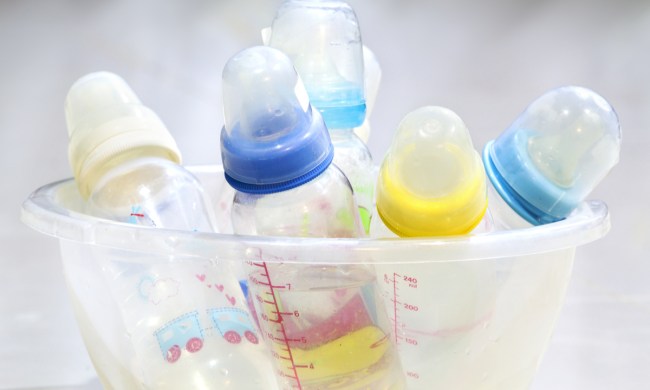Teens are notoriously moody but what is the reason and can anything help? And when are mood swings actually something more serious, like clinical depression?
If you’re looking for answers about why teens have mood swings, you’re not alone and we’re here to help. There are many strategies you can use to make it through these ups and downs and also ways to tell when your teen is going through something more than just moodiness. The mood swings are tough on you both, but the information ahead can help.

Why teens have mood swings
The onset of puberty is brought on by the production of certain hormones in the body. These hormones — testosterone in biological males and estrogen and progesterone in biological females — are what create the physical changes in the body like the growth of body hair, the onset of body odor, and the beginning of the menstrual cycle, but they also are the culprit behind the emotional changes you may be seeing in your teenager. The large, new amounts of these hormones coming into teens’ bodies can impact mood. These chemical changes are normal and can cause irritability, sadness, and frustration.
In addition to hormones coursing through their bodies, teens also have a lot going on emotionally. They are figuring out their identity, stressed about their social life and academics, and trying to establish their independence. Remember back to your teen years to remember just how overwhelming it all felt then.
The good news is that it’s possible it may only get better from your current situation. A study published in Child Development in 2015 showed that teen mood swings between happiness, anger, and sadness continuously declined across adolescence (age 13 to 18). The variability between those moods became less and less over the teen years, so as teens matured, their moods evened out.
When is it more than regular teen mood swings?
Teen mental health is an important topic that shouldn’t be overlooked just because it is normal for adolescents to struggle with mood swings. The hormonal changes can bring on serious issues like depression that may need treatment.
Psychologist Dr. Nadja N. Reilly suggests using three factors to distinguish between regular teen angst and something more:
- Severity. If your teen’s behavior is seriously different instead of minorly impacted, it could be time to see a doctor. For example, if she is sleeping or eating more or less than usual, withdrawing from friends and family, or seeming apathetic or hopeless, it could be depression. Of course, on another level, if he is having hallucinations, self-harming, taking drugs or drinking alcohol, or having suicidal thoughts it is time to take action.
- Duration. If any negative notable change in behavior lasts two weeks or longer without a break it could indicate depression.
- Domains. Look at multiple areas of your teen’s life like home, school, friends, and sports. If her mood is worse across the board instead of just in one domain, it could show that it isn’t just a dislike of a particular situation, subject, or person, but a general mood issue.
If you think your teen does have depression, talk to him about it and then reach out to his pediatrician about the next steps. Your doctor may recommend seeing a therapist and/or a psychiatrist.

How can I help my teen with mood swings?
While nothing may take away all of the ups and downs, try some of these strategies to help lessen the mood swings and improve mood in general:
- Keep open communication. Don’t judge, yell, or punish when you can help it so that your teen will talk openly to you about what’s going on.
- Encourage healthy sleep habits. Don’t allow phones or other screen devices in your teen’s bedroom after a certain curfew and enforce a bedtime in a way that makes sense for your family and your teen’s age.
- Encourage exercise. Ask him what sport he would like to try each season and sign him up for some kind of activity. If he’s totally opposed to any of the options, have him use a Wii Sports or go on a walk on his own for 20 minutes of movement.
- Remind her she’s not alone. All of her peers are going through this, too, even if it feels like she’s the only one. Let her know she can talk to you, a helpline, a school counselor, a friend, or anyone and you’d never be mad at her reaching out for help.
Teen mood swings are manageable
You can make it through the teen years together and come out on the other side stronger for it. The mood swings will pass but if your teen is showing signs of being consistently down with low energy and low mood, ask him more about how he is doing to see if it could be depression. Thirteen percent of U.S. teens have experienced a major depressive episode, so keep an eye out. Take care of yourself by talking to your own friends about your concerns and frustrations while living with your teen’s mood swings as well. Just remember that the teen years don’t last forever.



